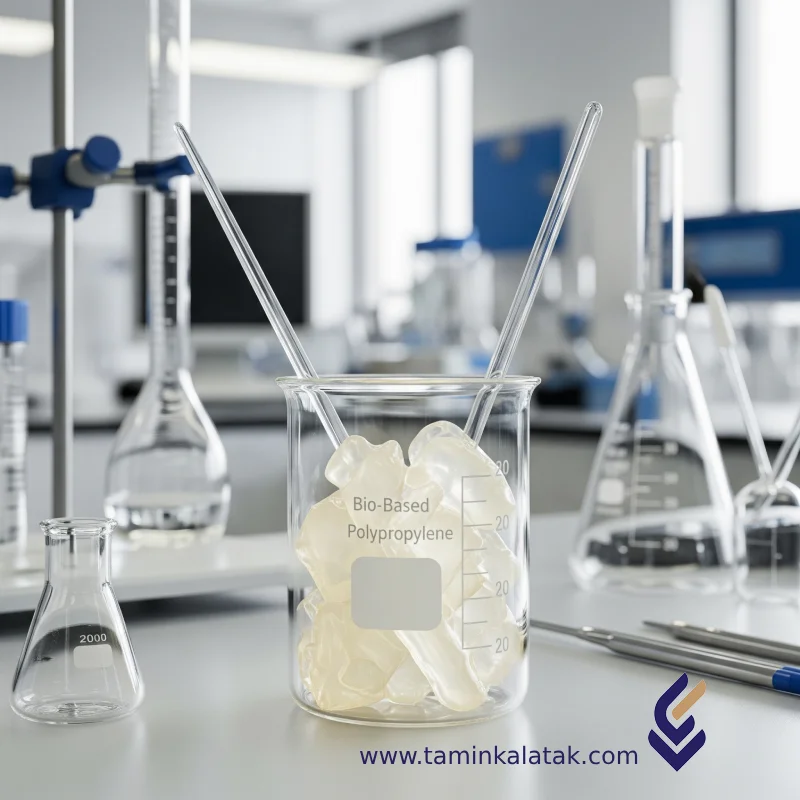Bio-based polypropylene (Bio-PP) is a type of thermoplastic polymer produced from renewable resources such as biomass, vegetable oils, or other natural organic materials. The chemical structure of Bio-PP is similar to that of conventional petroleum-based polypropylene; however, the main difference lies in its source of production.
Structure of Bio-based Polypropylene
The primary monomer of Bio-PP is propylene, which undergoes a polymerization process to form long polymer chains. Bio-PP is generally isotactic and functionally equivalent to conventional polypropylene, but it has a lower carbon footprint and, in many cases, offers greater recyclability.
Properties of Bio-based Polypropylene
-
Lightweight
-
Excellent thermal and chemical resistance
-
Good mechanical properties, including tensile strength
-
High recyclability
-
Compatible with standard polypropylene processing equipment
-
Suitable for food contact (with proper certification)
Applications of Bio-based Polypropylene
-
Packaging industry (food containers, packaging films)
-
Automotive industry (interior parts such as dashboards, handles, and trims)
-
Medical and pharmaceutical industries (syringes, drug packaging)
-
Household appliances (casings and plastic components)
-
Consumer products (reusable containers, bio-based disposable items)
-
Agricultural and greenhouse equipment
Disadvantages of Bio-based Polypropylene
-
Higher cost compared to conventional polypropylene
-
Limited availability in certain markets
-
Challenges in the supply chain for bio-based raw materials
-
Requirement for specific certifications for certain applications
Advantages of Bio-based Polypropylene
-
Reduced carbon footprint and environmental impact
-
Produced from renewable resources
-
Performance comparable to conventional PP
-
Recyclable and compatible with other polymers
-
Compliance with global environmental regulations







